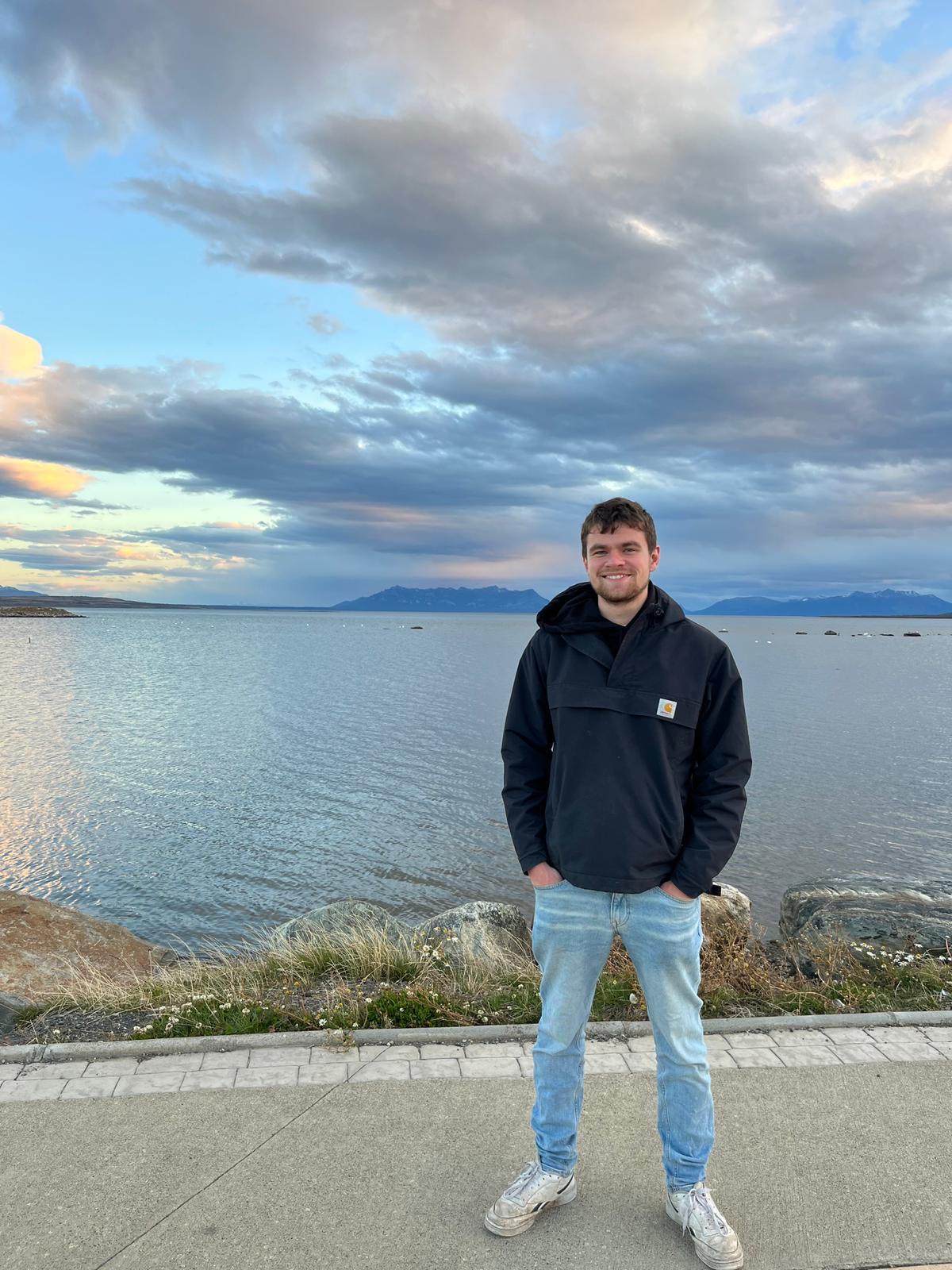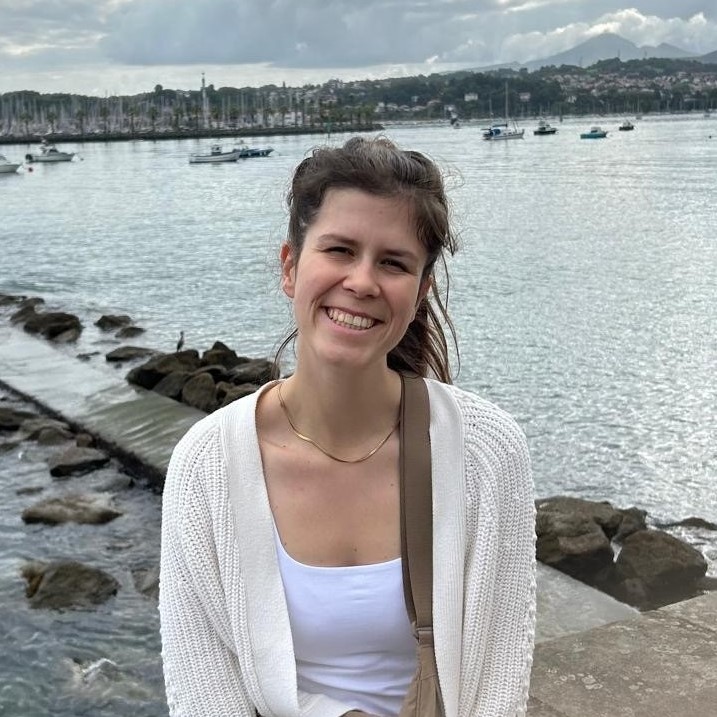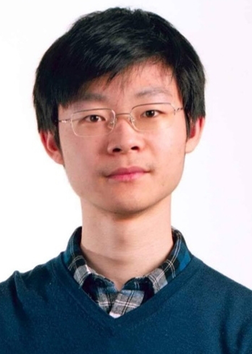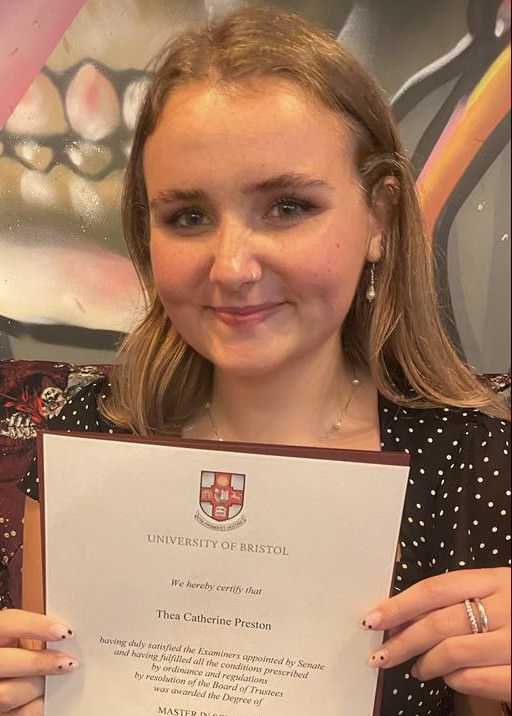EPSRC CDT React Cohort 5
- Aiden McGuirk
- Aleksandr Ostudin
- Daniel Dalland
- Edward Davies
- Emma Pajak
- Iwan Pavord
- Katherine Ailles
- Muye Xiao
- Thea Preston
What were you doing before joining the CDT?
I worked as a Graduate Product Development Scientist, focusing on the design of innovative water treatment absorbents.
Why did you choose to apply to the CDT program?
I appreciate the data-driven approach of the CDT, including their utilization of high-throughput and automation methods to advance innovation. The social aspect connected with the CDT further reinforced my decision to apply. The opportunity to be part of both a cohort and a research group was a significant benefit, alleviating some of the sense of individuality often linked with pursuing a PhD.
What are you looking forward to the most within the CDT programme?
I eagerly anticipate embracing fresh research challenges, particularly delving into computer modelling, investigating the uncharted territory of porous liquids, and delving deeper into the field of photochemistry.
Tell us a bit about yourself, and tell us: if you could choose to be an animal, what would it be and why?
If I was an animal, I would be a Sea turtle. I am laid back and enjoy adventure.
What were you doing before joining the CDT?
I worked full-time as a research engineer at NUS, where we successfully built an ML-driven synthetic platform for nanomaterials development.
Why did you choose to apply to the CDT program?
Modern approaches for solving applied challenges in chemistry and related fields change drastically and require a whole set of multidisciplinary skills and expertise. CDT provides it all and gives an opportunity to directly use your knowledge on such kinds of scientific and engineering problems.
What are you looking forward to the most within the CDT programme?
To learn how to do integrated research: from the conceptual idea sketching and hypothesis testing to the final fine-tuning and presenting your designed solution.
Tell us a bit about yourself, and tell us: if you could choose to be an animal, what would it be and why?
Lynx. First, observe carefully, then - act decisively.
What were you doing before joining the CDT?
Before joining the CDT I was doing a 2 month UROP project in the research group of Prof. Britovsek in collaboration with Polymateria. Before that, I was working on my final year MSci in the research group of Prof. Hii, focusing on transient flow chemistry and modern kinetic analysis in Python.
Why did you choose to apply to the CDT program?
I chose to apply to the CDT programme because I enjoy chemistry and wanted to stay in London and Imperial College. I was also keen to work with BASF and follow up on the interesting work I did within the research group of Prof. Hii as an undergraduate. I chose my current project because I will learn many useful skills such as high throughput experimentation, data analysis, flow chemistry and possibly machine learning. I am also fascinated by the prospect of using kinetics and transient flow experiments to better understand the Buchwald Hartwig reaction, thereby helping chemists use the reaction successfully and with lower material costs.
What are you looking forward to the most within the CDT programme?
Within the CDT programme I am looking most forward to learning about the things above, improving my skills and resilience as a researcher and hopefully do useful research. I also look forward to getting to know the other CDT students better and form new friendships.
Tell us a bit about yourself, and tell us: if you could choose to be an animal, what would it be and why?
I come from southwestern Norway but also lived in France as a child. I enjoy football, being with friends and working outside when I am back home. If I was an animal I would be a bever because I like trying to master nature by making something useful with others (it was that or rubber duck because I looked like one as a baby).
What were you doing before joining the CDT?
I was an undergraduate studying for an MSci in Chemistry at Imperial.
Why did you choose to apply to the CDT program?
Having completed my degree, I was eager to remain at Imperial, I then was alerted to the existence of the CBT. I learnt great and interdisciplinary the course and would greatly expand my capabilities as modern day chemist. The project I chose was one based heavily on organic synthesis, which I find to be quite nice.
What are you looking forward to the most within the CDT programme?
Undertaking my project work; I enjoy being in the lab, running a quick column.
Tell us a bit about yourself, and tell us: if you could choose to be an animal, what would it be and why?
I enjoy going AFC Wimbledon football matches, the public house and music concerts. In my free time I play various musical instruments.
If I could be any animal I would be an emperor penguin, because if you remove my shins, I would be the same height as one.
What were you doing before joining the CDT?
I was finishing my MEng in Chemical Engineering here at Imperial. A key part of this was my research project which involved developing digital twins of common engineering unit operations, e.g. a pump, heat exchanger, etc. and embedding them into flowsheeting software. The aim being to evaluate whether they could provide an accuracy improvement on the current traditional physics-based models.
Why did you choose to apply to the CDT program?
I was particularly keen to embrace the interdisciplinary nature of the programme, especially as my project draws upon the chemical engineering, data science, and chemistry disciplines.
For me, working in collaboration with BASF on an industrially-relevant project and interfacing with experts in the field is a key motivation.
What are you looking forward to the most within the CDT programme?
THaving access to a wealth of opportunities that will support my professional development, but also doing this as part of a larger cohort.
Tell us a bit about yourself, and tell us: if you could choose to be an animal, what would it be and why?
Definitely a cat. They have it the best - eat, sleep, relax - repeat!
What were you doing before joining the CDT?
Took a gap year to travel through Patagonia and South East Asia, as well as learn to code
Why did you choose to apply to the CDT program?
The CDT is a great chance to gain important skills for the future of chemistry and apply them in a PhD. My project has similarities to my MChem project, focused on an industrial 3 phase heterogenous catalytic system, whilst this project applies machine learning which I have strived to acquire knowledge in.
What are you looking forward to the most within the CDT programme?
Learning more about the research done by other groups within the CDT and expanding my broader chemistry knowledge.
Tell us a bit about yourself, and tell us: if you could choose to be an animal, what would it be and why?
I am a Leicester City football fan and I like to play chess and poker. I chose Pigeon since they apparently too are gamblers (taking unfavourable risks for more food over safer options), this reflects my chess and poker strategies well.
What were you doing before joining the CDT?
I graduated from the University of York in 2022 after completing my integrated master's focusing on ruthenium pincer catalysis in the Weller Group. For the past year I have been working as a chartered accountant.
Why did you choose to apply to the CDT program?
My project focuses on catalytic chromium pincer complexes and this follows on nicely from the ruthenium pincer species I was looking at in my masters just with the added complexity of being paramagnetic species. I chose to apply to the CDT as after having a year out of chemistry it was a great way to get back into chemistry through the first part of teaching before returning to the lab. I was also drawn to the other skills the CDT programme promotes such as data analytics.
What are you looking forward to the most within the CDT programme?
I am looking forward to being surrounded by science again and having the constant problem solving that comes with being in the lab. I am also looking forward to the optional lecture courses that will broaden my understanding and support my PhD.
Tell us a bit about yourself, and tell us: if you could choose to be an animal, what would it be and why?
Alongside chemistry, I play netball in the Herts County league and really enjoy baking.
If I were an animal I would be a Labrador in particular my dog. She loves meeting new people, playing games and eating while also sleeping loads.
What were you doing before joining the CDT?
I was doing my MSci degree in chemistry at Imperial College.
Why did you choose to apply to the CDT program?
The CDT offers a great opportunity to study broader than what chemists do traditionally. As a chemistry student with some background in programming, I hope to extend it through the machine learning course. The engineering aspect of the programme also gives a stronger connection to the reality. In particular regarding my project about the microdroplet reactor, this is a new field, and it is always exciting to do novel things. I also reckon the project is a proper balance of chemistry, engineering, and programming, which can potentially make chemistry reactions cleaner less labor-intensive.
What are you looking forward to the most within the CDT programme?
Know more chemistry than engineers; know more engineering than chemists. And produce solutions that is useful in the real world.
Tell us a bit about yourself, and tell us: if you could choose to be an animal, what would it be and why?
A cat. Simply because I like its lifestyle. I enjoy photography and classical music outside the lab.
What were you doing before joining the CDT?
I graduated from the University of Bristol in July 2022. After working for a few months, I went travelling around central and south America! Hiking volcano Acatenango was a highlight of the trip.
Why did you choose to apply to the CDT program?
I really enjoyed my masters project and wanted to continue studying and researching, the CDT seems like the perfect combination of the two.
My project focuses on ligand parameterisation for copper catalysis, by combining experimental and computational work. I enjoyed my masters project that focused on phosphorus ligand design for hydroformylation so I’m excited to start another catalysis focused project!
What are you looking forward to the most within the CDT programme?
I’m really excited to learn more about data science and how machine learning can be used alongside chemistry. I also like the idea of being part of a cohort and working together whilst learning lots of new skills.
Tell us a bit about yourself, and tell us: if you could choose to be an animal, what would it be and why?
I love the outdoors, especially the beach. I moved to London for the CDT programme so I’m excited to explore London’s huge selection of shops and pubs too!
If I could be any animal, I would definitely be my dog Hampton, he has the best life!
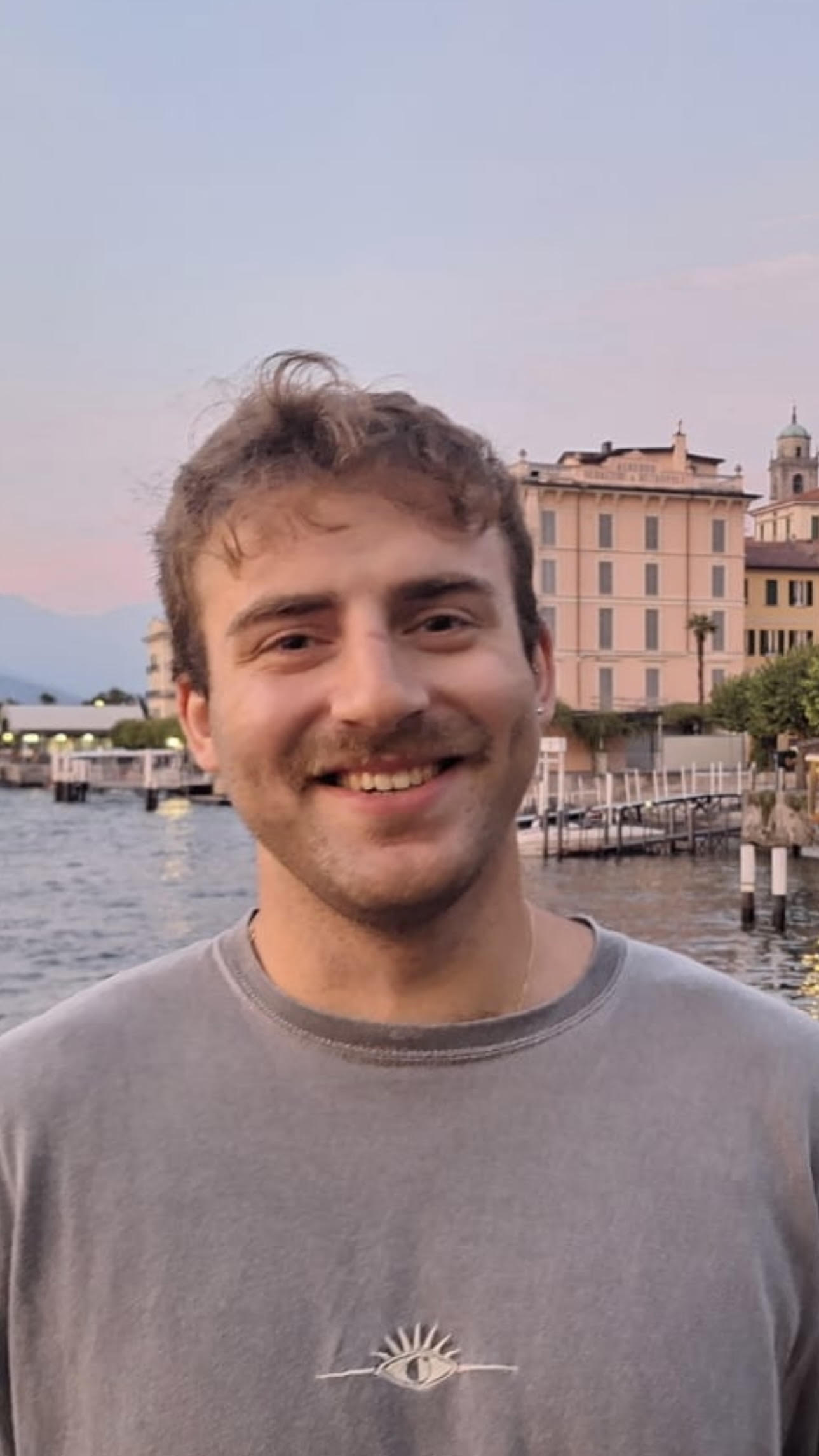
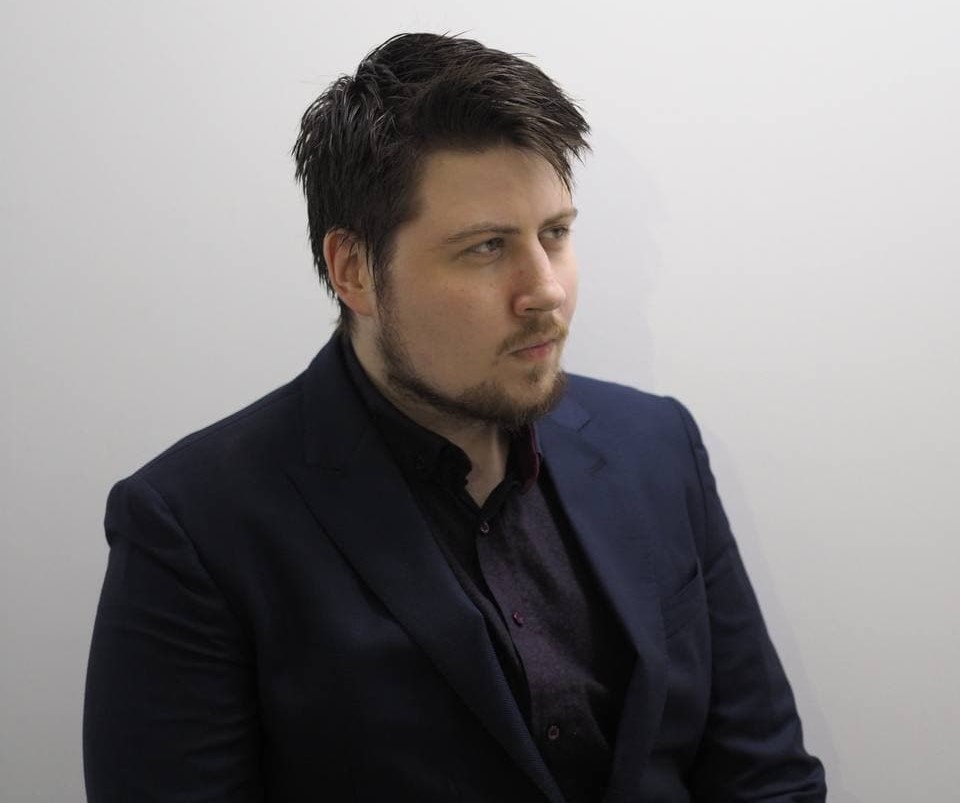
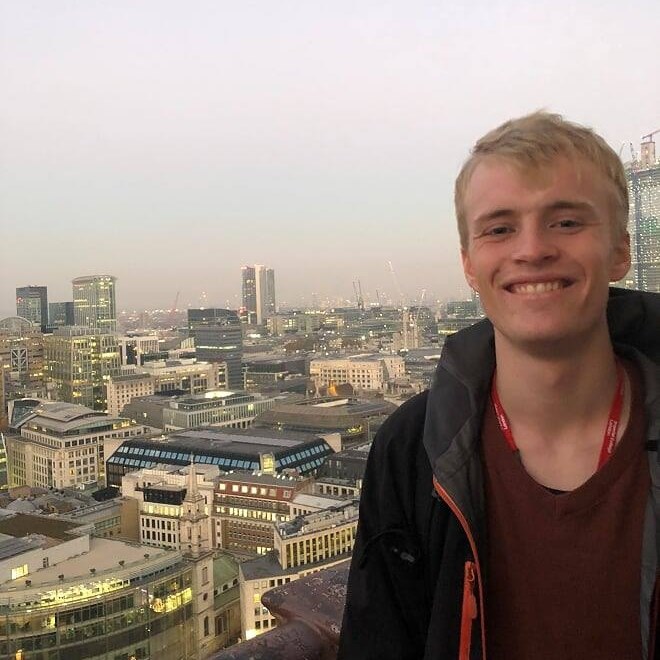
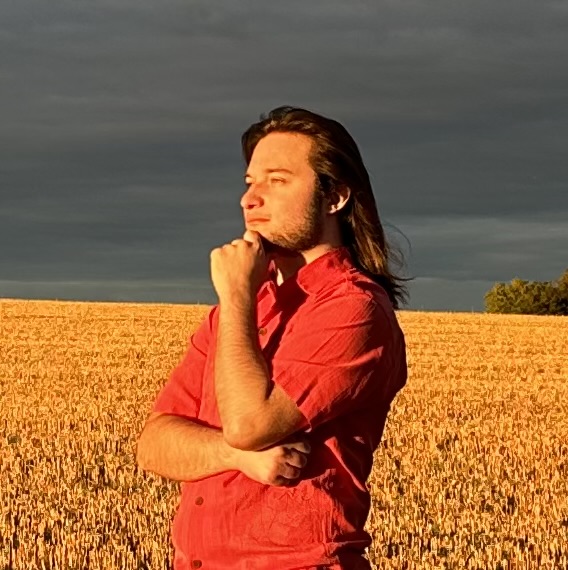
.jpg)
